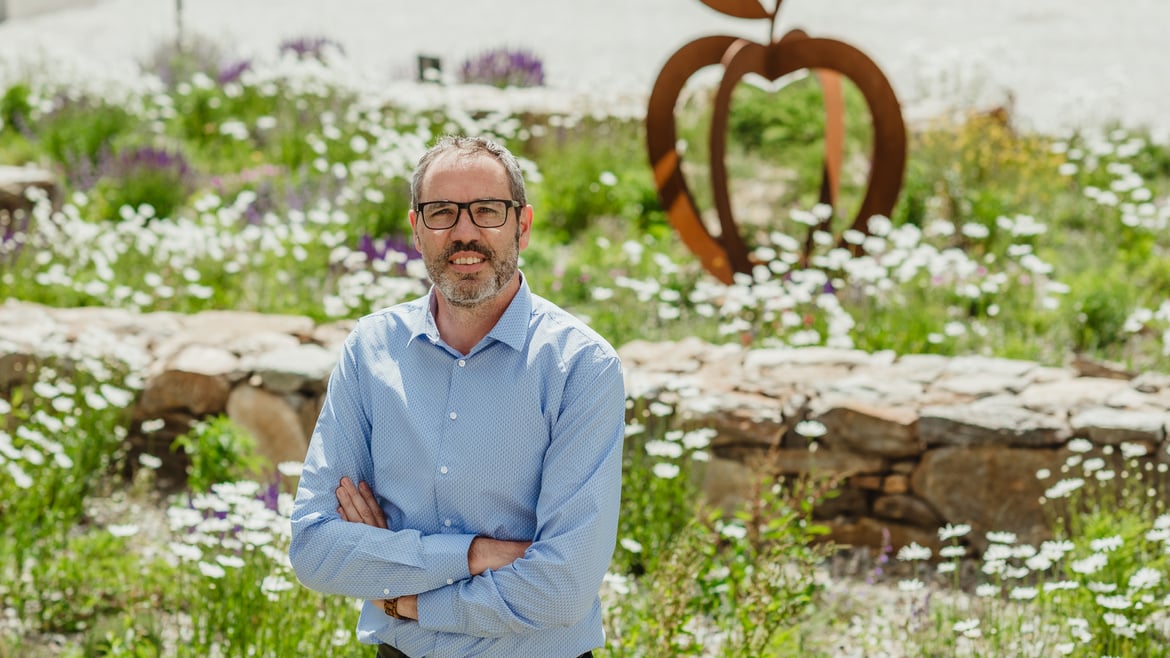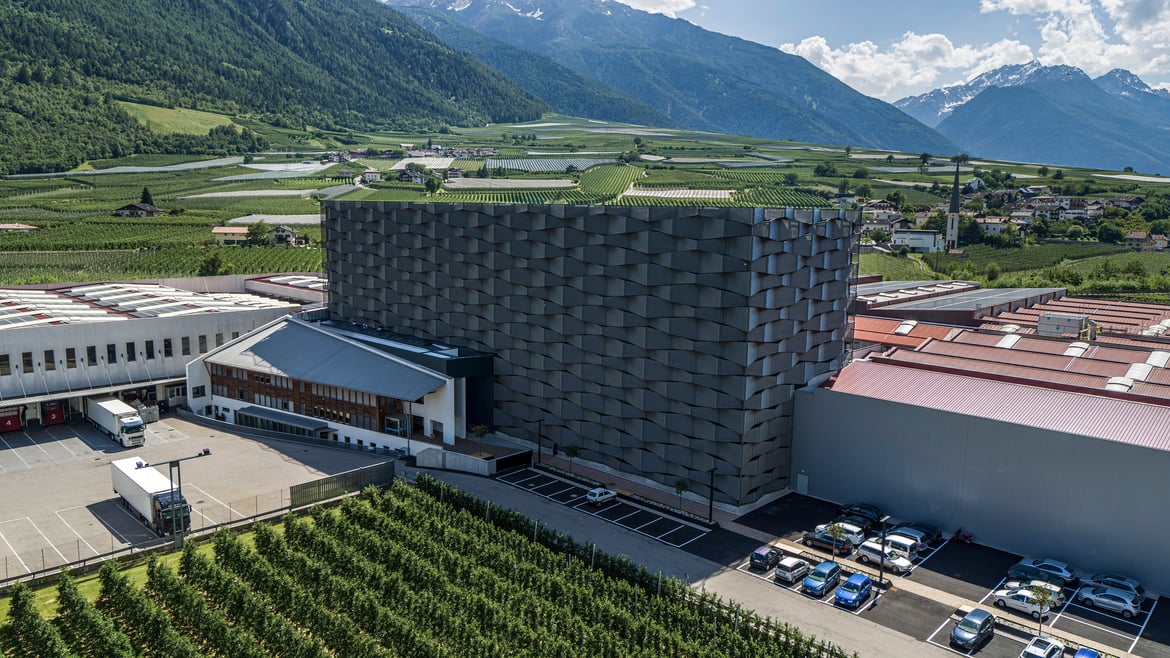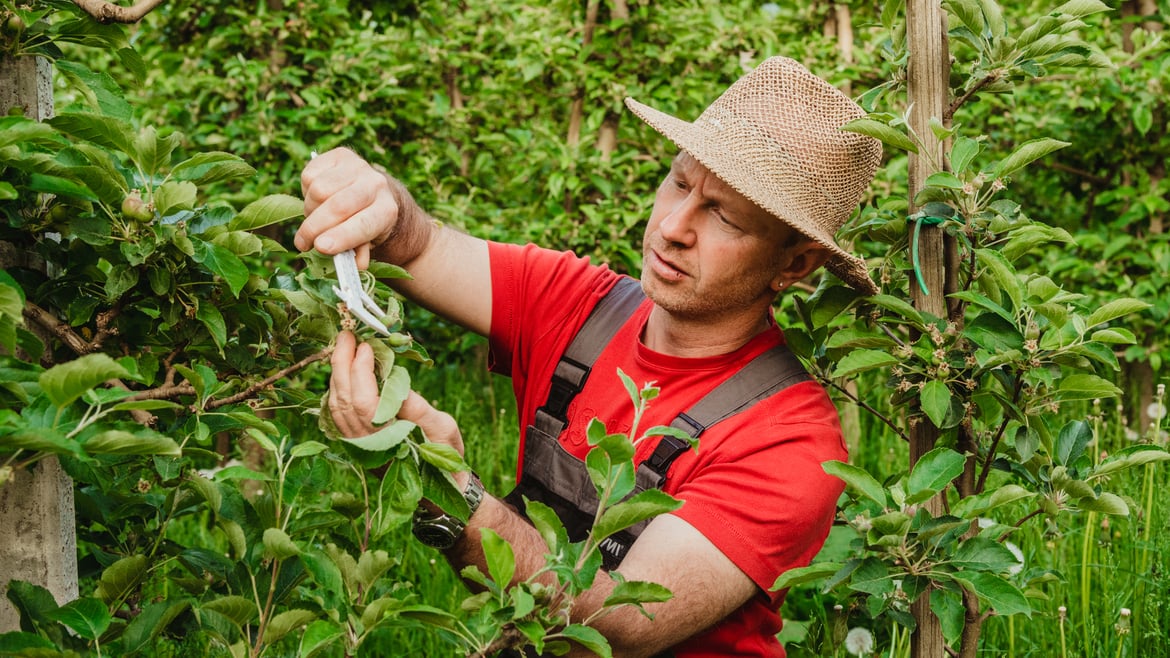Interview with Gerhard Eberhöfer, Productmanager BIO at VIP
Mr. Eberhöfer, the organic apple season in Val Venosta is almost over. How did it go this year?
Gerhard Eberhöfer:
The season is drawing to a close with very positive results. The final shipments will leave our organic packing facility in Castelbello by mid-August. Although we had to deal with some extreme weather conditions last year, we were able to maintain a steady supply and ensure high quality. In fact, we even saw an increase in sales on the domestic market, which is very encouraging.
What were the key success factors for this season?
Consistency was definitely our biggest strength. We managed to keep about 45,000 tonnes of organic apples on the European market – with our strongest demand still coming from Germany, Scandinavia and the UK. At the same time, interest is steadily growing in other parts of Europe, including Italy.
What really gave us a competitive edge was our uninterrupted availability throughout the summer months. While many growing regions face seasonal gaps, our unique soil and climate in the “Apple Paradise” of Val Venosta allow us to transform challenges into opportunities – be it in terms of farming techniques, variety development, or improving how we serve the market.
How important is variety innovation in that process?
It plays a central role. We’re investing in new, innovative varieties like SweeTango®, Ambrosia™, Kanzi®, and Cosmic Crisp®, alongside robust and resilient organic varieties such as Bonita and Natyra®. These new orchards are now gradually reaching full production.
Each variety will have its own dedicated harvest and sales window – meaning no overlaps and a clear focus on delivering the right apple at the right time.
Looking ahead, what can we expect from the next season?
The outlook for the 2025/26 campaign is promising. We’re expecting a similar volume of apples for the fresh market, with a slight increase in the amount allocated for processing. Our core goal remains unchanged: to supply our key markets consistently and reliably throughout the year.
What are the market dynamics for organic apples in general?
We’re seeing a slow but steady recovery. Demand is picking up again across Europe, with growth estimated between 1% and 5%. Some major retail chains in the EU are expanding their organic offerings – not just in terms of varieties, but also in pricing: introducing both entry-level and premium ranges alongside the standard products.
At the same time, there’s a clear decline in imports from the Southern Hemisphere – a trend that strengthens the position of European producers like VIP.
Despite the success, organic production still faces challenges. Can you share some of them?
Absolutely. Behind every successful season is the constant effort of our growers, who have to manage increasingly complex conditions. Woolly apple aphid, for example, has become a major issue – and we’ve launched a dedicated research project to tackle it. Another challenge is the lack of sufficient day-night temperature variation, which affects fruit colouring.
Of course, not everything can be blamed on the climate, but many of these issues are clearly made worse by it. Still, our growers remain deeply committed to organic farming – producing apples that are not only delicious and healthy, but also environmentally responsible.



